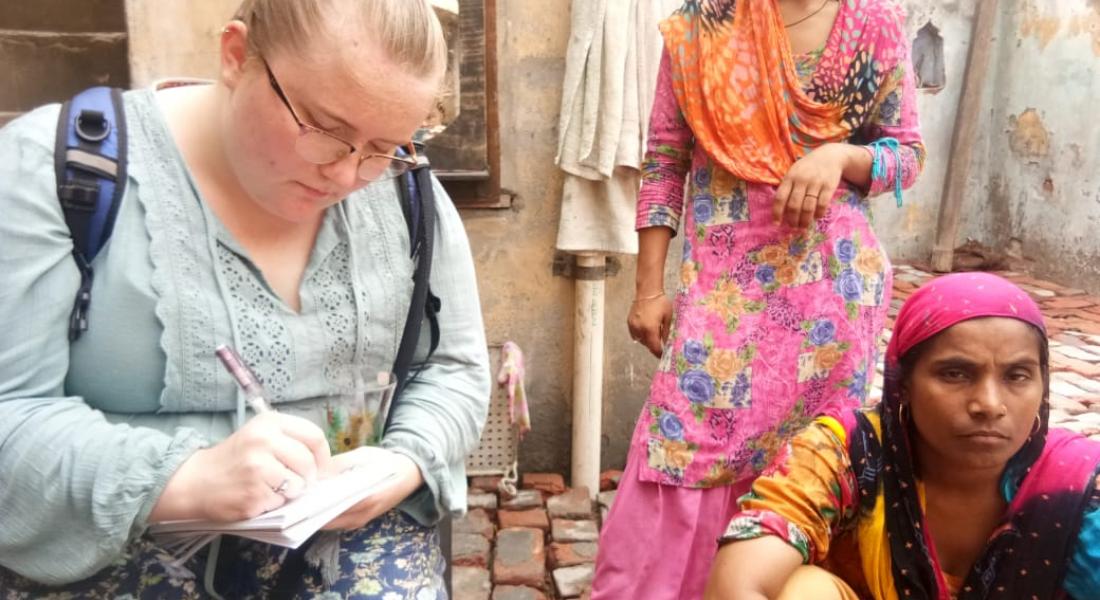
On Wednesday, July 3…
This past week I was able to get my first data in my second village, Memarpur. From the initial observations that I made on Monday, Memarpur seems less developed compared to Badzipur Saboli, both in terms of infrastructure and gender equality. Right away, some of the people we surveyed told us they did not have toilets and those that did recognize that others did not. This is a difference from Badzipur Saboli. In terms of women, I was surveying a woman that first day and her husband approached us. When he got near she pulled her headscarf to cover her face pretty much completely and told us to ask him any other questions we had. We have been trying to avoid this scenario now because it leads to incomplete surveys. It has happened a couple more times. Something like this had not happened in Badzipur Saboli, even when men did approach us.
Over the last week, I have surveyed many households who do not have a toilet. Like in Badzipur Saboli, there seems to be a link to caste. Many of those who do not have a toilet talk about how the community leader really only helps households get toilets that are in his same caste. Some who have toilets said they had to build the toilet with their own resources and were told they would get some reimbursement but they never have. Overall, the village seems to have higher rates of open defecation both among those who do not have a toilet and those who do have a toilet. Many women who have toilets said they would still open defecate if they are somewhere, like in the field working, as it is more convenient to defecate outside. I have been interested to see that there are clear differences between the two villages but also some clear similarities, such as the inequality between caste. I am interested to see all of the trends once I collect more data.
Something new that has come up many times is that the drain system that many of the toilet systems drain into, it is an open drain, are contaminating drinking water and leading to a mosquito problem. The drains are acting as a breeding ground for the mosquitoes and many people say that themselves or someone in their family has been affected by dengue, malaria, and chikungunya. They said it is especially a problem during the rainy season, which is coming up in a few weeks, so many people are starting to get worried. This is showing me further just how interconnected these public health problems can be. While my main focus has been on fecal-oral disease, these diseases are even more dangerous and seem to be more common because of poor sanitation infrastructure. I am paying close attention to this topic as we finish this week and prepare for our final week of surveys.
Colleen Ballantyne is minoring in International Development Studies.





